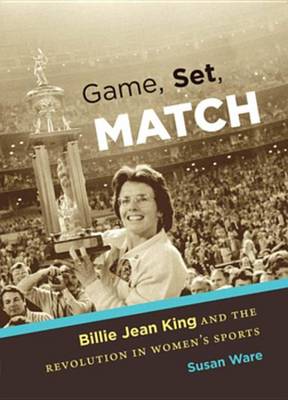
brokentune
Written on Jul 5, 2014
Almost exactly a year ago I read and reviewed a little known book written by seven-times Wimbledon champion Dorothea Lambert Chambers on Lawn Tennis for Ladies.
Chambers' book was published in 1910.
It is both remarkable and incredibly sad that Billie Jean King still had to battle with the same (if not worse) sexist bullshit that Chambers tried to fight 50+ years earlier, that only a few decades ago the idea of women engaging in sports, or even exercise, was a cause of social pariah and in need of justification. There is still a lot of work to be done today for women athletes to be recognised on an equal level as male athletes, but what Ware describes in quite detailed statistics is just incredible: that it took the enactment of Title IX of the Education Amendments of 1972 (in the US) to enable women to receive athletic scholarships from universities and thus a more equal opportunity to access higher education.
The sponsor of the Amendment, Senator Bayh summarised a prevailing attitude towards women in higher education as follows:
"We are all familiar with the stereotype of women as pretty things who go to college to find a husband, go on to graduate school because they want a more interesting husband, and finally marry, have children, and never work again. The desire of many schools not to waste a 'man's place' on a woman stems from such stereotyped notions. But the facts absolutely contradict these myths about the 'weaker sex' and it is time to change our operating assumptions."
So, what has the change in legislation to do with Billie Jean King?
Well, Ware uses the backdrop of social history as a canvas to draw out a biography of Billie Jean King in which the author emphasizes the resistance and sexism King encountered and how she and her husband played a vital role in becoming lobbyists for gender equality in sports.
Ware, in my opinion, is not very successful in combining the two aspects of social and legal history and biography in this book. Apart from Ware's over-emphasis on King's "identity issues" (i.e. her sexuality), the main issue with Ware's attempt - which had me rolling my eyes continuously throughout the book - was that her writing seemed to want to attribute the shift in social attitudes towards women's sports entirely to Billie Jean King. It is only in the closing chapters of the book that Ware pays tribute to other leading athletes and sports promoters who supported the movement for equality.
However, the book is still a fantastic exploration of the legal and social history of the USA, and the aspects of trying to legislate for equality in education.
